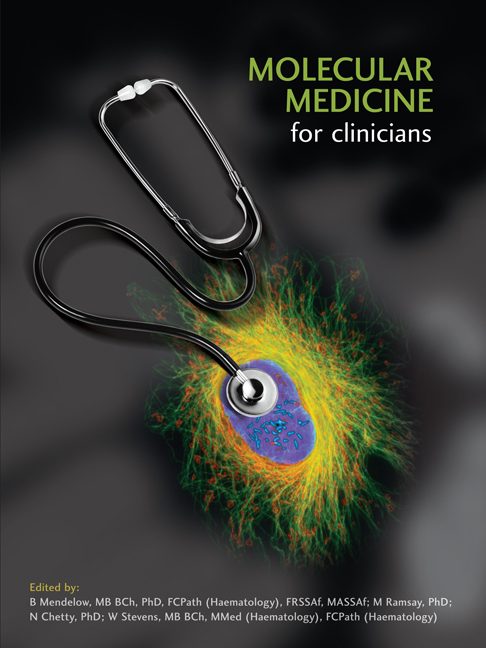Book contents
- Frontmatter
- Contents
- Foreword
- Acknowledgements
- Chapter 1 Introduction
- Keynote Essay 1: Defining Who We Are: DNA in Forensics, Genealogy and Human Origins
- Section 1 Principles Of Cellular And Molecular Biology
- SECTION 2 MOLECULAR PATHOLOGY
- SECTION 3 MOLECULAR THERAPEUTICS
- SECTION 4 RESEARCH AND THE CONTINUING EVOLUTION OF MOLECULAR MEDICINE
- Glossary
- Contributors’ Biographies
- Source Material And Recommended Reading
- Permissions And Credits
- Index
Foreword
Published online by Cambridge University Press: 04 June 2019
- Frontmatter
- Contents
- Foreword
- Acknowledgements
- Chapter 1 Introduction
- Keynote Essay 1: Defining Who We Are: DNA in Forensics, Genealogy and Human Origins
- Section 1 Principles Of Cellular And Molecular Biology
- SECTION 2 MOLECULAR PATHOLOGY
- SECTION 3 MOLECULAR THERAPEUTICS
- SECTION 4 RESEARCH AND THE CONTINUING EVOLUTION OF MOLECULAR MEDICINE
- Glossary
- Contributors’ Biographies
- Source Material And Recommended Reading
- Permissions And Credits
- Index
Summary
Many people find it difficult to understand the idea of molecules (invisible to the eye, and usually detectable only by the use of complicated machines) being responsible for problems such as heart failure and mental disorders. We have evolved to trust what we can actively see, touch, smell, hear and taste; in the same way we like to understand what is going on, in our own bodies and in those of others, on the basis of direct sensory experience, developing an integrated picture facilitated by memorised information and the application of logical thinking against a background of varying amounts of emotional overdrive. That for millennia has been the basis of medicine as an art.
Molecules in contrast present all sorts of obstacles to our ‘normal’ ways of addressing health issues. Compare physical anatomy with molecular structure – in the first, we can dissect cadavers with scalpels and tweezers, and see the structures and their relationships with the naked eye; in the second, the ‘dissection’ requires a combination of specialised variants of optical and electron microscopy, stains and probes, and ultimately (in the present ‘omic’ era) genomics, transcriptomics and proteomics, and the analysis of an endless complexity of dynamic interactions between the constituent molecules of the tissues in question.
But the shift to molecular thinking can be made quite easily, if one learns to let one's imagination habitually enter the world below one's sensory thresholds. Everything that goes wrong (and right) macroscopically is ultimately determined by what goes on submicroscopically, and everything that happens sub-microscopically is determined by what is happening at the molecular level. The explanatory potential is accordingly usually amplified by orders of magnitude as you go down to this degree of molecular magnification. How would it be possible to discover that a host of cardiac disorders of uncertain cause are in fact caused by specific mutations in genes for proteins involved in muscular contraction and its regulation, if all we knew was what we could see, touch and feel? How would it be possible to trace the events in HIV-infected persons that are the prime causes of the phenomena observed clinically? How would it be possible to understand the workings of the immune system or the brain?
- Type
- Chapter
- Information
- Publisher: Wits University PressPrint publication year: 2008

